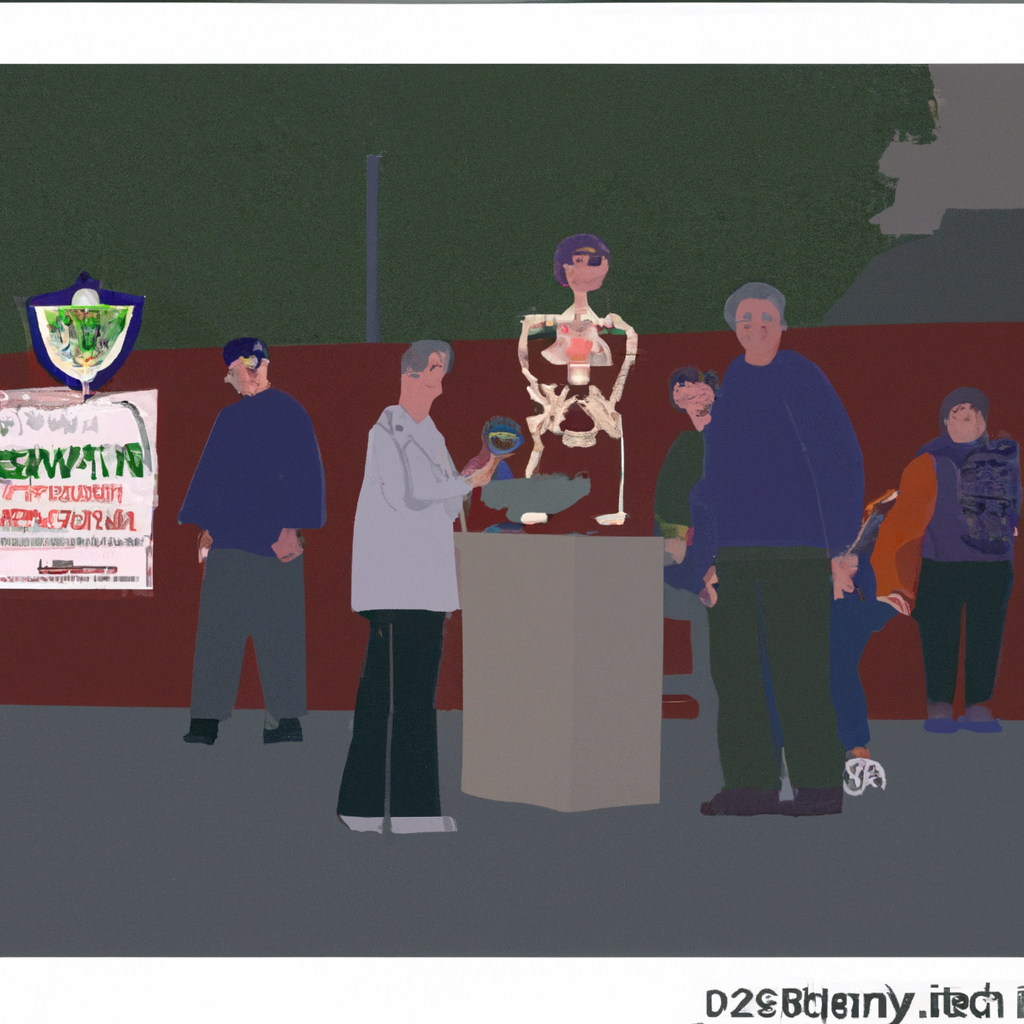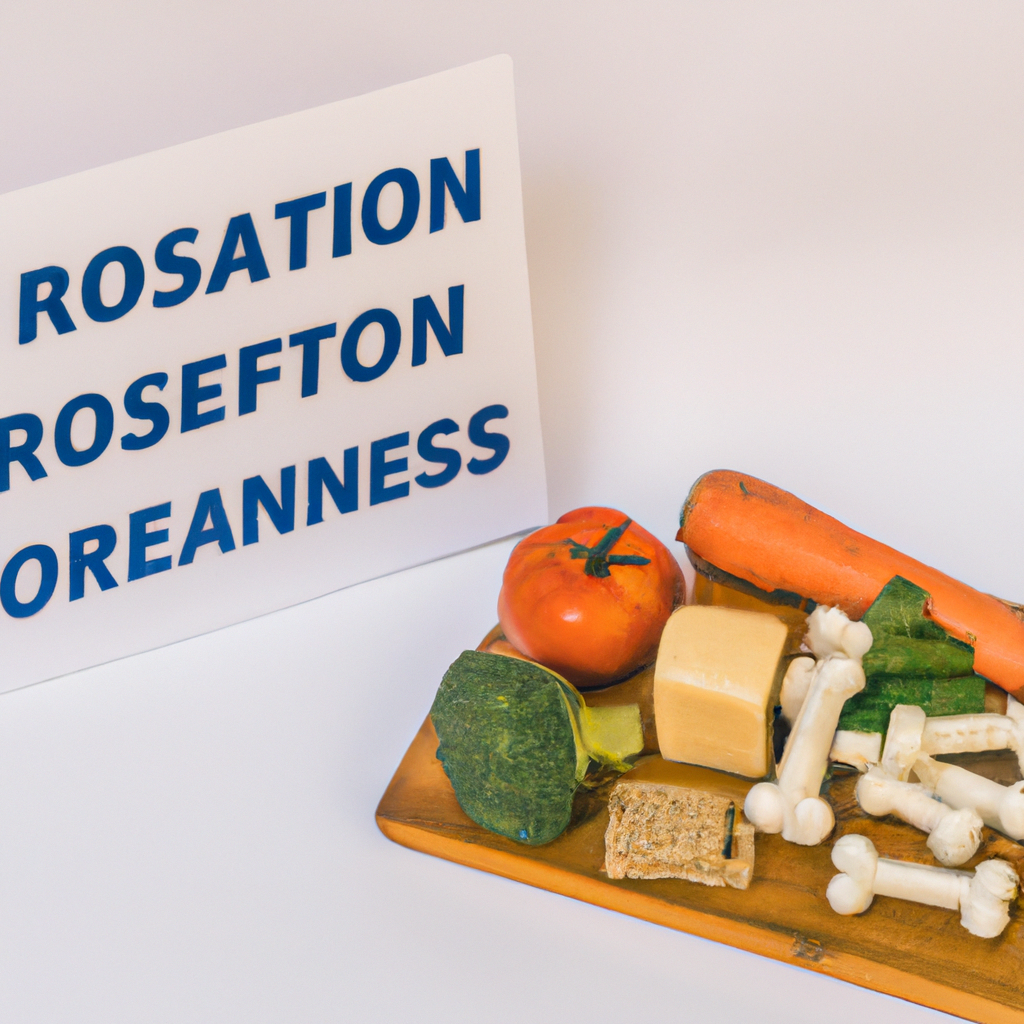Maintaining a healthy and balanced diet has long been known to be important for overall health and wellbeing, but did you know that it can also help protect against chronic conditions like osteoporosis? Osteoporosis is a serious and debilitating condition that can drastically decrease a person’s quality of life. Fortunately, there are many steps you can take to prevent this condition, and one of the most important is to ensure that your diet includes adequate sources of proper nutrition for your bones. Read on to learn more about osteoporosis prevention and bone-healthy diet!
1. “Building a Strong Foundation: Harness the Power of Prevention to Combat Osteoporosis”
Let’s start this journey to combating osteoporosis with the strength of prevention. Our bones, muscles, and associated tissues allow us to function in this world, so taking a proactive approach to our health is essential. Building a strong foundation is the best place to start, so here are some tips to help you get started.
- Nutrition: Eating the right foods is important for overall health. Choose an array of fruits, vegetables, and grains for maximum benefits. Dairy products are also important, so be sure to include plenty of milk, cheese, and yogurt. Protein is important too, so be sure to include lean meats, eggs, and beans in your diet. Finally, a multivitamin may help ensure you get the essential vitamins and minerals your body needs.
- Exercise: Exercise helps keep bones strong by pushing them to their limit and stimulating bone growth. We all know it’s easier to stay physically fit when we enjoy it, so find an activity you love and make it part of your routine. If you’re often pushed for time, try to break your exercise into smaller chunks, like a few 10 minute sessions throughout the day. This way, you won’t have to take time out of your day to hit the gym.
- Quit Smoking: Smoking has many damaging effects on our body, including impacting bone health. When you quit, you’ll see an increase in your overall health and improved bone strength. It’s not easy to quit, but there are many resources available to help, so reach out and get the support you need.
- Limit Alcohol Consumption: While an occasional alcoholic drink may not have a dramatic effect on your bones, excessive drinking can actually have a negative impact. It’s difficult to reduce your drinking, but remember that moderation is key. If you find that you’re struggling with an alcohol addiction, there are many resources available to help.
These tips, combined with regular bone health screenings, combine to create a strong foundation for helping to combat osteoporosis. Keeping an eye on your long term health can be difficult, but it will be worth it. So if you’re interested in building a solid foundation for your health, then take a proactive approach to combat osteoporosis.
2. “Fueling Your Body: Unlocking the Secrets of a Bone-Healthy Diet”
Good bone health is something we all strive for, but we don’t always know the best way to get there. Eating for healthy bones requires understanding the importance of certain foods, and how certain elements of our diet interact with our body’s natural processes.
To reap the benefits of a bone-healthy diet, it’s essential to keep a few key things in mind:
- Calcium Intake: While calcium is essential to strong bones, your body can only absorb a limited amount. Make sure to spread your calcium intake out throughout the day, and include a wide variety of calcium-rich foods in your diet. The more diverse your diet, the more efficiently your body will be able to absorb this important mineral.
- Vitamin D: Vitamin D is also crucial for bone health. Try to get your vitamin D through natural sources like outdoor light andcod liver oil, as these are the most easily absorbed. Eating foods that are high in vitamin D is also essential for bone health.
- Protein: Protein is important for strong bones, as it helps to keep cells functioning properly and supports bone building. It’s essential to include a variety of sources of protein in your diet, such as fish, legumes, nuts, and seeds.
Along with these key elements, it’s important to make sure you’re getting sufficient amounts of other minerals like zinc, magnesium, phosphorus, and vitamin K. Try to include these in your diet as often as possible.
Making sure you’re getting the right balance of nutrients is the key to maintaining healthy bones for life. Don’t be afraid to experiment with different foods and find ways to incorporate a wide variety of nutrient-rich foods into your diet. Eating with bone health in mind will not only help keep your bones strong, but it will also provide a variety of other health benefits.
3. “Cracking Down on Osteoporosis: Your Guide to Nourishing Your Bones and Preventing Fractures”
Osteoporosis is a major health concern worldwide. It weakens bones, making them fragile and more prone to fractures. Protecting your bones -and yourself- from the effects of osteoporosis is an important step to living a healthy, long life. Here are some tips to nourish and strengthen your bones:
- Eat Foods High in Calcium and Vitamin D: Dairy products, canned fish with edible bones, green leafy vegetables, and fortified foods like orange juice are excellent sources of calcium and vitamin D. Both are essential for healthy bones, so aim to get several servings of these foods daily.
- Move Your Muscles: Weight-bearing exercises like walking or jogging, yoga, and resistance training stimulate bone-building activity. Aim for 30 minutes of exercise three times a week for healthy bones.
- Cut Out Smoking and Heavy Drinking: Both increase the risk of developing osteoporosis and can greatly reduce your intake of vitamin D.
- Get Enough Sun: A daily dose of 10-15 minutes of sunshine is essential to stay replenished in vitamin D. If getting sunshine is not an option, try taking vitamin D supplements.
Don’t forget your supplements! Taking a daily supplement with calcium and vitamin D will help ensure your body is getting enough of these vital bone-strengthening nutrients. Your doctor can advise you on the right supplement for you.
Osteoporosis is a complex condition with many contributing factors, and determining the best approach for prevention is unique to each individual. If you are concerned about developing osteoporosis, talk to your doctor about the steps you can take to nourish your bones and prevent fractures.
4. “Bone-Health Breakthroughs: Unveiling the Science behind Osteoporosis Prevention and Nutrient-Rich Diets
Though diet and lifestyle factors largely contribute to osteoporosis and bone-health, recent breakthroughs in science have changed the way we think about healthy eating and preventing this condition.
Calcium: Calcium is the most abundant mineral in the body and essential for proper bone health. Keeping your calcium levels high helps maintain bone density and strength. Dairy products and calcium-fortified foods such as orange juice, cereals, and breads are all excellent sources of calcium.
Vitamin D: Vitamin D is an important component of calcium absorption in the body. Without it, the body cannot properly absorb calcium. Getting enough Vitamin D helps the bones maintain their strength and structure. Vitamin D is found in fortified cereals, some dairy products, oily fish, and even the sun.
Omega-3 Fatty Acids: Omega-3 fatty acids are healthy fats that play an important role in helping to maintain bone health. They help reduce inflammation and also have positive effects on cardiovascular health. Good sources of omega-3 fatty acids include salmon, tuna, walnuts, flaxseeds, and chia seeds.
As you incorporate these nutrients into your diet, it is important to keep in mind that some foods can be detrimental to bone health.
- Processed meats are high in salt content, which can lead to greater risk of bone loss.
- Soft drinks and other sugary beverages are harmful to bones and teeth.
- Alcohol intake is another potential risk factor for osteoporosis.
By increasing your intake of these bone-healthy nutrients and avoiding the unhealthy food choices, proper nutrition can help keep your bone density strong. Be sure to talk to your doctor about any concerns you may have about your diet and bone health.
Eating right is a great start to preventing osteoporosis. With the right diet of nutrient rich and calcium-containing foods, you can keep your bones strong and healthy throughout life. So make it a priority to nourish your bones and safeguard your health for years to come.


